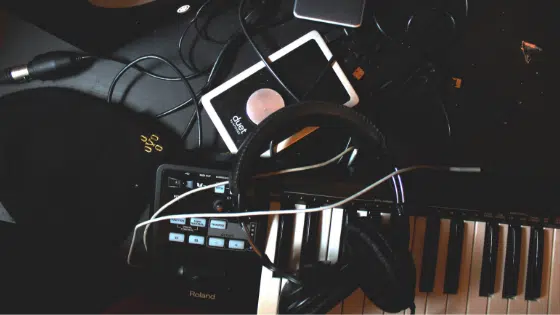For so many artists, licensing is seen as the holy grail of placements. Oftentimes paid and accompanied by a huge increase in exposure, your song landing in the right TV show, movie, or commercial can mean major transformation for your band. Even the smallest placements usually come with a paycheck and a boost in fans—both of your music and fans from the industry side, which, you guessed it, can lead to even more placements.
How then, can an indie band end up gaining a licensing placement for their song?
Make sure you’re registered
First and foremost you need to make sure you’re registered with a Performing Rights Organization like ASCAP, BMI, or SESAC. This is crucial because these are the people that make sure you’re getting paid every time your song is played.
But don’t stop there. You’ll also want to look into mechanical royalties, (the money you make when something is downloaded or sold on say, iTunes, which ASCAP, SESAC, and BMI don’t cover.)
Spotify, Amazon, Google, etc pay the mechanical royalties directly to publishers, not PROs, which means in order to get the mechanical royalties you’re owed, you’d probably do best to have a publisher. It’s not that you aren’t owed it without one, it’s just that in general, the people responsible for paying you don’t actually know how to find you and odds are they’re not pulling out all the stops to make sure they find you.
Simply put, having a publisher makes this all a bit cleaner and gets you closer to the money you’re owed.
Consider a publisher
This brings us nicely to our second point—finding a publisher. While you certainly don’t need a publisher, and working with one means giving up 50% of your profits, it also means you’re more likely to actually get those songs placed somewhere, and get all the royalties you’re owed.
Think of this as hiring a publicist rather than doing your own PR. Sure, you could do all the outreach yourself, but beyond being a huge time sink, you probably don’t have the same connections that your publicist does. Publishers are the same way. They have relationships with music supervisors that would be difficult for most independent artists to attain. (Side note: Symphonic Distribution offers in-house sync licensing for all our clients.)
If you do have those relationships, then sure, try it out! Just make sure you’re pitching to them personally (no copy and paste, no misspelled names, and no generic emails) and don’t harass them. Be professional but polite, and don’t be afraid to throw a little charm and personality in there.
Decide if you want to write for licensing
One of the questions you’re going to face early on is “am I writing songs with the intention of getting them licensed?” Some artists will prefer to just write the songs they want and if they get licensed, great and if not, no big deal. Others will want to make the intentional decision to write songs accessible enough to get picked up. It’s a decision that’s entirely yours, but something to be aware and conscious of as you’re creating music.
Get Creative
Not every placement is going to be a spot on the season’s hottest TV show or the catchy tune in the background of your favorite brand’s commercial. Some placements will be for obscure movies or TV shows, and that’s ok. If you’re willing to think even further outside the box, there’s even opportunities outside the traditional film/TV avenue including in virtual reality, Snapchat, and of course, streaming services like Netflix and Hulu. (more on all that here.)
Landing a licensing placement for your song can be such an incredible opportunity, and I believe it’s within the reach of all serious artists. While a more commercially accessible song might generate more initial interest or a faster placement, I really believe that there’s a scene, a moment, an opportunity for every song—it’s just a matter of finding it.



